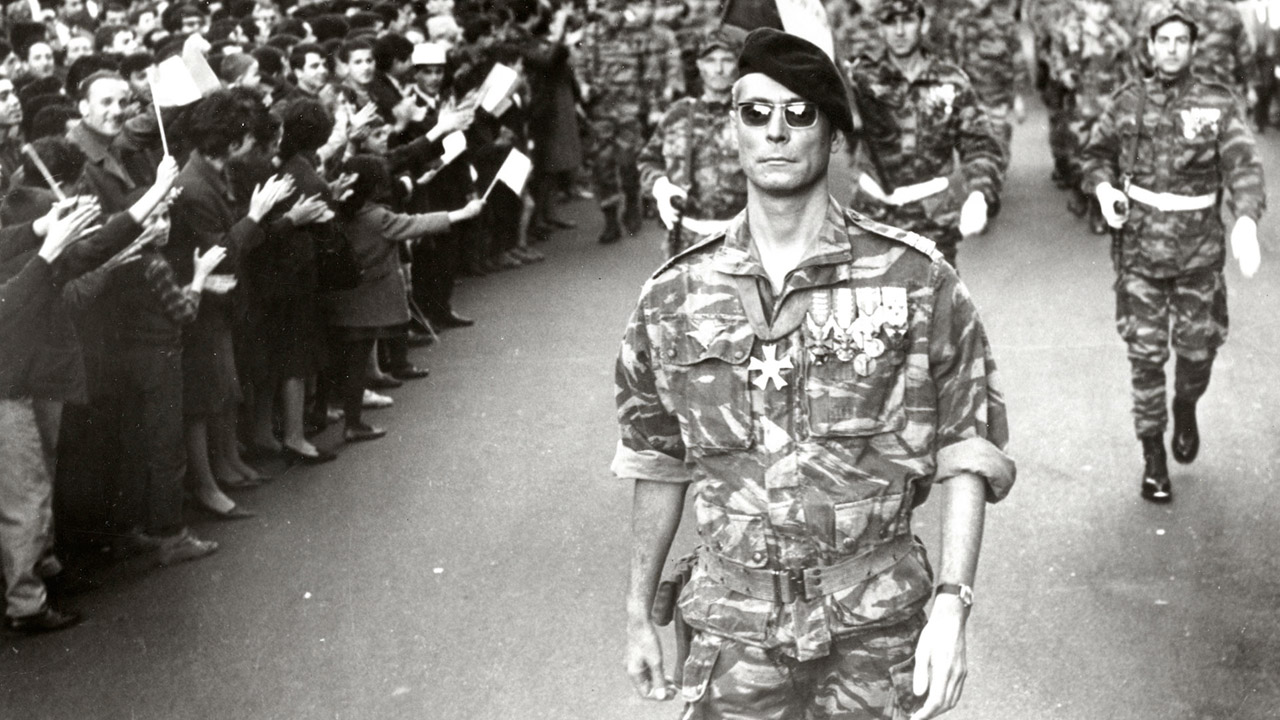
The Italian cinema of the 20th century, particularly in the post-World War II era, became known for its bold and thought-provoking approach to social and political issues. Directors in Italy brought attention to class struggles, corruption, and the shifting political landscape, blending art and activism in ways that profoundly influenced international cinema. Directors like Francesco Rosi, Elio Petri, and Damiano Damiani used their films to spotlight complex issues, creating a body of work that is both culturally significant and artistically groundbreaking.
Francesco Rosi and the Foundation of Political Cinema in Italy
Francesco Rosi is widely regarded as one of the pioneers of Italy’s socially conscious cinema. His films are known for their journalistic style and incisive portrayal of Italian society, especially focusing on corruption, organized crime, and socio-political tension. Rosi’s Salvatore Giuliano (1962) is a landmark in this genre, recounting the life and death of a Sicilian bandit entangled with politics, crime, and rebellion. Shot in a quasi-documentary style, Salvatore Giuliano is praised for its meticulous attention to detail and the powerful critique of Italy’s socio-political landscape. The film earned Rosi international acclaim and laid the groundwork for Italian filmmakers to explore challenging social issues.
Elio Petri and the Examination of Power Structures
Elio Petri further propelled political cinema with his pointed critiques of authority and the alienation of the working class. His film Indagine su un cittadino al di sopra di ogni sospetto (Investigation of a Citizen Above Suspicion, 1970) centers on a high-ranking police officer who commits murder and manipulates the investigation to cover up his crime, demonstrating the abuses of power within the Italian state. The film, with a memorable performance by Gian Maria Volonté, won the Academy Award for Best Foreign Language Film and remains a definitive work in the genre, exploring themes of control, corruption, and moral decay.
Following this success, Petri tackled the plight of the working class with La classe operaia va in paradiso (The Working Class Goes to Heaven, 1971). This film, again starring Volonté, portrays a factory worker whose life becomes emblematic of the physical and psychological tolls of capitalist exploitation. The film won the Palme d’Or at the Cannes Film Festival and resonated deeply during a time of widespread labor unrest in Italy, cementing Petri’s reputation as a socially engaged filmmaker.
Damiano Damiani and the Critique of Italian Institutions
Damiano Damiani, another influential figure in Italian political cinema, focused on themes of crime, justice, and corruption. His adaptation of Leonardo Sciascia’s novel Il giorno della civetta (The Day of the Owl, 1968) examines the mafia’s influence on Italian society, exploring the complex relationships between organized crime, the police, and the government. Damiani’s subsequent work, Confessioni di un Commissario di Polizia al Procuratore della Repubblica (Confessions of a Police Captain, 1971), reveals the struggles of law enforcement in a corrupt society, raising questions about the role of the state in perpetuating injustice.
Both films starred the charismatic Gian Maria Volonté, whose performances added depth to Damiani’s vivid portrayal of the Italian social fabric, highlighting the often blurry line between crime and law enforcement.
Francesco Rosi’s Il caso Mattei: The Apex of Italian Political Cinema
Perhaps the pinnacle of Italy’s politically charged cinema is Rosi’s Il caso Mattei (The Mattei Affair, 1972). The film investigates the life and mysterious death of Enrico Mattei, the powerful head of Italy’s state-owned energy company, ENI. Mattei, a prominent figure in Italy’s post-war industrial landscape, had challenged the interests of international oil companies, making enemies both at home and abroad. Rosi’s film suggests that Mattei’s death may have been an assassination, but it leaves the mystery unresolved, allowing the viewer to confront the uncertainty and danger surrounding power and ambition. Il caso Mattei won the Palme d’Or at the Cannes Film Festival and is considered a masterwork in investigative cinema, influencing later political thrillers, including Oliver Stone’s JFK (1991).
Gillo Pontecorvo’s La battaglia di Algeri: International Influence and Legacy
While not strictly about Italy, Gillo Pontecorvo’s La battaglia di Algeri (The Battle of Algiers, 1966) is essential to the Italian political cinema canon. The film, a powerful re-enactment of Algeria’s struggle for independence from French colonial rule, is celebrated for its realistic portrayal of guerilla warfare and urban resistance. Pontecorvo shot the film in a gritty, documentary style, and it received the Golden Lion at the Venice Film Festival. Banned in France upon its release, The Battle of Algiers has become one of the most studied films globally, renowned for its artistry, realism, and political courage.
The Legacy of Italian Political Cinema
Italian political cinema of the 1960s and 1970s has had a lasting influence on global filmmaking, particularly in its approach to tackling controversial subjects with courage and artistry. Directors in Italy used cinema not merely as entertainment but as a platform to question, expose, and provoke thought around the complex socio-political issues of the time. The impact of these films is seen in the work of later filmmakers worldwide, especially those interested in exploring the intersection of politics, power, and social justice.
Italian cinema’s social and political films remain cornerstones of both film history and socio-political critique. These works continue to inspire filmmakers and audiences alike, reminding us of cinema’s power to question, influence, and bring about awareness.
Italian cinema has a rich tradition of films that address social and political issues, often reflecting the country’s historical and cultural shifts. Here’s a look at some notable Italian films, spanning from the postwar era to the present, that tackle social and political themes.
1. Neorealism Era (1940s–1950s)
Italian Neorealism emerged after WWII, using non-professional actors, real locations, and focusing on the lives of everyday people, often emphasizing poverty, unemployment, and the struggle for dignity.
- “Rome, Open City” (1945) – Directed by Roberto Rossellini
Theme: Resistance and survival under Nazi occupation during WWII. Synopsis: A portrayal of the Italian Resistance movement, blending documentary-style realism with dramatic storytelling. - “Bicycle Thieves” (1948) – Directed by Vittorio De Sica
Theme: Postwar poverty and class struggles. Synopsis: A man and his son search for a stolen bicycle that is essential for his job, highlighting the struggles of the working class. - “La Terra Trema” (1948) – Directed by Luchino Visconti
Theme: Class exploitation and rural poverty. Synopsis: A fishing family in Sicily battles poverty and oppression from local wholesalers, symbolizing the exploitation of the working class.
2. 1960s–1970s: Social Commentaries and Political Cinema
Italian cinema in the 1960s and 70s continued to focus on political themes, now with a broader critique of corruption, political unrest, and class disparities.
- “Salvatore Giuliano” (1962) – Directed by Francesco Rosi
Theme: Organized crime, corruption, and political betrayal. Synopsis: A semi-documentary portrayal of the life and mysterious death of Sicilian bandit and folk hero Salvatore Giuliano. - “The Battle of Algiers” (1966) – Directed by Gillo Pontecorvo
Theme: Colonialism and liberation struggles. Synopsis: Though set in Algeria, it mirrors themes relevant to Italian leftist movements and global anti-colonial sentiments. - “Investigation of a Citizen Above Suspicion” (1970) – Directed by Elio Petri
Theme: Power abuse, authoritarianism. Synopsis: A police officer tests his immunity to prosecution by committing murder, critiquing the immunity of state power. - “Love and Anarchy” (1973) – Directed by Lina Wertmüller
Theme: Fascism, freedom, and personal resistance. Synopsis: A story about a man who plans to assassinate Mussolini, exploring Italy’s fascist past and themes of rebellion.
3. 1980s–1990s: Reflections on Modern Society
As Italy modernized, filmmakers reflected on urbanization, changing family structures, and social alienation.
- “Christ Stopped at Eboli” (1979) – Directed by Francesco Rosi
Theme: Isolation and the plight of Southern Italy. Synopsis: An adaptation of Carlo Levi’s memoir about exile in Southern Italy, highlighting disparities between north and south. - “Cinema Paradiso” (1988) – Directed by Giuseppe Tornatore
Theme: Nostalgia, change, and the impact of cinema on society. Synopsis: A filmmaker reflects on his childhood and the role of cinema in shaping his life and town, mirroring changes in Italian society. - “The Stolen Children” (1992) – Directed by Gianni Amelio
Theme: Child exploitation and state neglect. Synopsis: A policeman is tasked with escorting two children to a foster home, revealing Italy’s social issues and bureaucracy.
4. 2000s–Present: Globalization, Immigration, and New Social Challenges
More recent films explore themes of immigration, economic struggles, and Italy’s shifting identity within Europe.
- “Gomorrah” (2008) – Directed by Matteo Garrone
Theme: Organized crime and social decay. Synopsis: Based on Roberto Saviano’s book, this film provides an unflinching look at the Camorra crime syndicate’s grip on Naples. - “The Great Beauty” (2013) – Directed by Paolo Sorrentino
Theme: Modern decadence and existential ennui. Synopsis: An aging writer reflects on Rome’s high society, capturing Italy’s existential and cultural malaise. - “Fire at Sea” (2016) – Directed by Gianfranco Rosi
Theme: Refugee crisis and migration. Synopsis: A documentary-style film that juxtaposes the lives of locals in Lampedusa with the plight of migrants, showing the human impact of the migration crisis. - “The Traitor” (2019) – Directed by Marco Bellocchio
Theme: Organized crime and state collusion. Synopsis: A recount of the first Sicilian Mafia informant’s testimony, exploring the relationship between the Mafia and the state.
These films collectively reflect Italy’s ongoing social and political discourse, tackling a wide range of issues from poverty and exploitation to modern alienation and organized crime. They are internationally acclaimed for their artistry and impactful storytelling, capturing both the unique Italian experience and universal struggles.
Italian Dating & Chat for Italian Singles

Virtually meet thousands of like-minded Italian singles and connect at lightning speed; on desktop, tablet, and your beloved phone. Chat into the wee hours of the night if you’d like. Post photos, share your interests and dreams-we’ll help you look your best while you do it.Here we make it easy to meet Italian singles and feel things out first so when you do go on that first date, or meet for espresso, you can relax and be yourself. Try it now!





